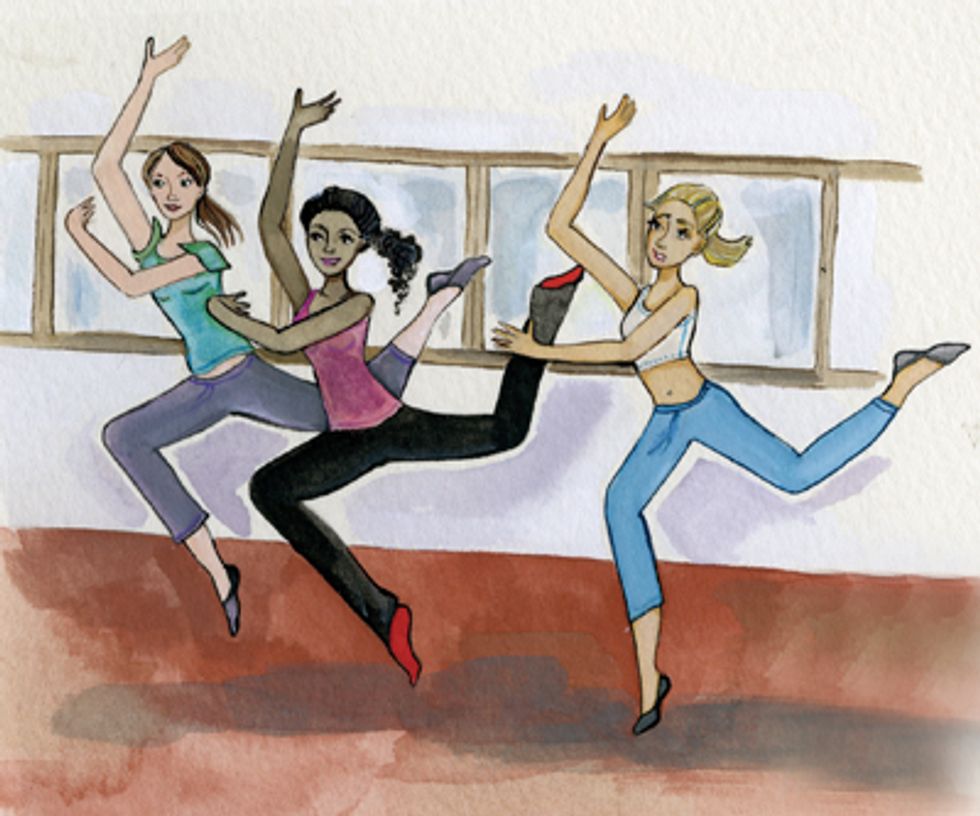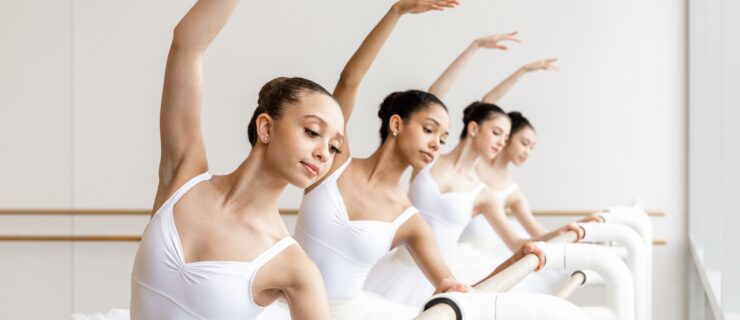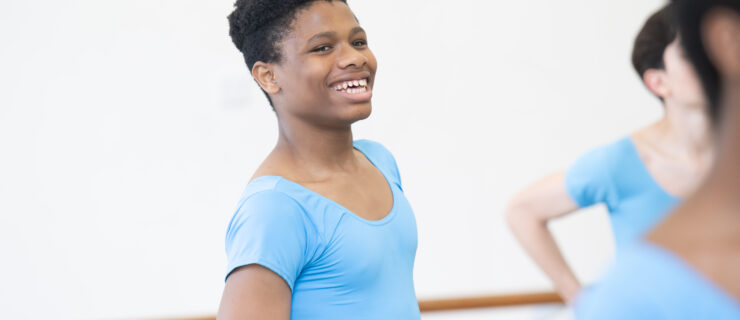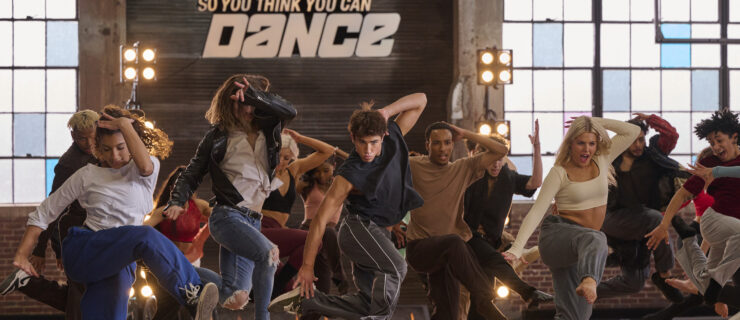Keeping Pace
Deirdre Lewis loved studying ballet and jazz as a young teen, but unlike many of her peers at Dance Workshop of Hanover in Massachusetts, “dance was not my life,” she says. “I was a cheerleader, and was also very involved in school.” As her non-dance activities took up more and more of her time, she started falling behind in dance. “Girls in my class were asked to join the studio’s preprofessional company, and I wasn’t. Plus, as the other girls got more involved with dance, they started to form stronger bonds with each other, which made me feel more left out.”
Dierdre struggled with these feelings for several years, and even considered quitting dance entirely. However, her dance teachers encouraged her to stay involved and keep her passion alive. Then at 16, she finally realized it wasn’t talent that was holding her back—it was her commitment. “Although cheerleading was fun and something I was naturally good at, I really wanted to be an amazing dancer,” she says. So, she quit cheerleading and enrolled in more dance classes. “I was very focused and eventually caught up to the level of the other dancers in class,” she says. “That gave me the confidence to pursue dance in college.” Now, Deirdre’s a senior at Keene State College in New Hampshire, focusing on modern dance.
Many dancers struggle when they’re progressing at a different rate than their peers. It can be tough to see your friends improving when you feel like you’ve hit a plateau. And it can be just as hard when you’re the one pulling ahead—you might have to deal with jealousy, or feel guilty for getting parts your friends want. Stop constantly comparing yourself to your peers by realizing that everyone develops at a different pace. “To one degree or another, you’re always better than somebody and worse than somebody else,” says Dr. Kate Hays, a Toronto-based psychologist who specializes in sport and performance psychology. But that’s just the first piece of the puzzle. Here, DS offers advice on handling your dance class growing pains.
Be an Individual
If you’re falling behind, Hays recommends focusing on yourself rather than on your peers’ performances. “You can’t control how somebody else is doing,” she says, “but you can control how you practice, what you practice and what your goals are.”
If you’re feeling discouraged, Linda Hamilton, a clinical psychologist who specializes in the performing arts, recommends taking a step back to examine your situation. Are you going through a growth spurt? Were you just promoted into a more advanced class? Or, like Deirdre, have you taken on too many extracurricular activities? Any of these scenarios can affect your dance performance as compared to your classmates.
Set training and technique goals that focus on your own development—not on your place in the class or company. For instance, if you’re experiencing a growth spurt that has thrown off your balance, try cross-training to develop your core strength. If everyone in your class can do triple pirouettes but you’re still struggling with doubles, keep working on those doubles until you master them. Ask your teacher to help you set goals that are specific to your needs. Hays suggests keeping a journal detailing your goals and the steps you’re taking toward them to feel more in control of your progress.
Compare With Purpose
Sometimes it helps to compare yourself to your classmates—that is, if you use these comparisons for motivation. It all depends on how you think about yourself in relation to your peers. For instance, Hays points out that thinking, “What is it that she’s doing so well, and what can I learn from it?” is much healthier than, “She can do that, and I can’t.”
“If other dancers are advancing more quickly than you, consider it a gift to be able to watch and learn from them,” says Deirdre, who felt pushed to work harder when she was in class with more advanced peers. “Each dancer in the room brings something different. You can pick out one thing you really enjoy from each classmate and put it in your pocket to make your own.”
Own Your Talent
Even dancers who are more advanced can feel insecure about their place in class. “Girls sometimes feel guilty about being better, like they shouldn’t be different or stand out,” Hays says. This feeling of guilt can be compounded in the dance world, where you’re competing for attention and roles: A friend’s disappointment or jealousy can dampen your enthusiasm at succeeding. But being sensitive to your peers’ emotions doesn’t mean being ashamed of your developing talent. As you comfort—or confront—frustrated friends, remind yourself that you’ve also worked hard to get where you are.
Interestingly, Hays’ and Hamilton’s biggest piece of advice for dancers who are pulling ahead of their peers is the same thing they tell dancers who are falling behind: Focus on yourself and on what you can control. Make personal goals and note when you achieve them. Beyond that, look for common ground with your friends—it doesn’t have to be dance-related—to ease the tension you feel in dance class.
Whether you’re having a rough dance period or it’s smooth sailing, you’ll benefit from pursuing interests and friendships outside the studio. Then, when the going gets tough, “pay attention to some of the other qualities you like about yourself and about your friends,” Hays says. “Even if dance is a tremendously important part of who you are, it’s not all that you are.”




